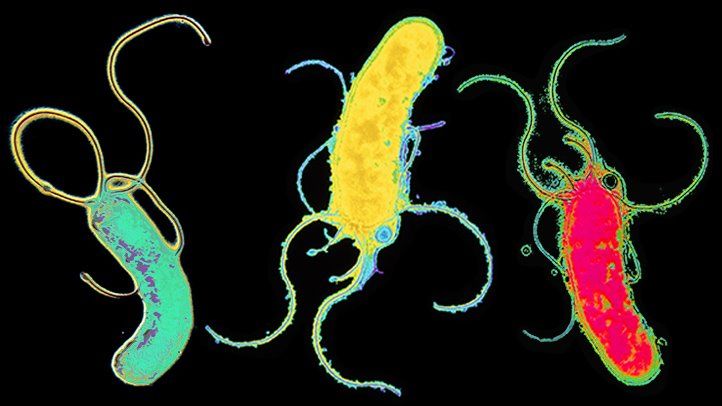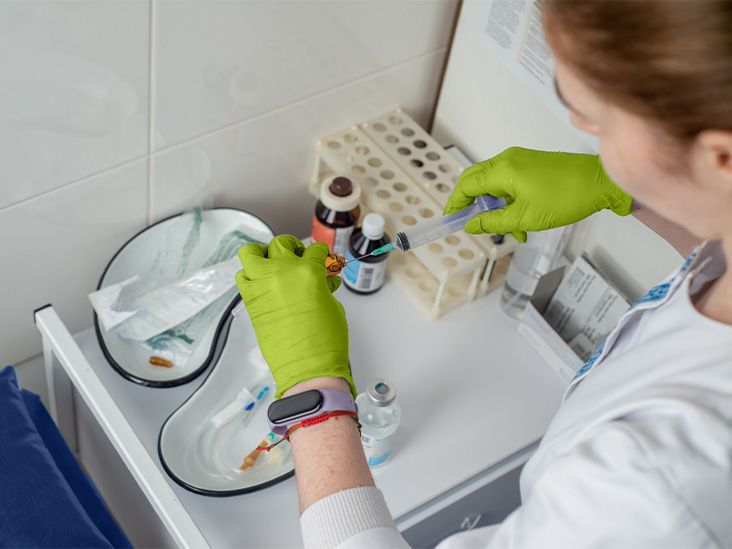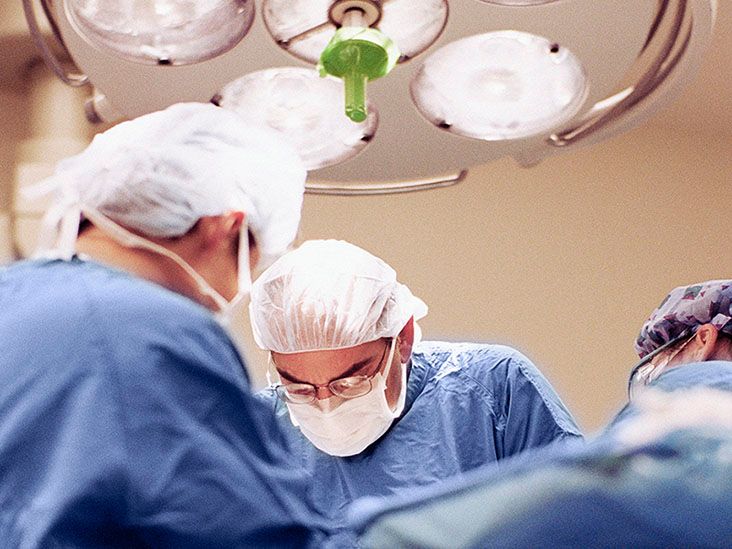If you've landed here because "stomach cancer risk" has been circling in your mind, take a deep breathI'm glad you're taking a moment to learn. Here's the short version: the biggest drivers are age, being male, H. pylori infection, certain diets (especially high-salt and heavily processed meats), smoking, and family or genetic factors. But there's good news woven into all of this. Many risks are manageable. And even if you have a risk factor, it doesn't mean you'll get cancer.
What can you do right now? If you've had stubborn indigestion, ask your clinician about testing for H. pylori. If you smoke, consider today your "small step" day. Nudge alcohol down. Tweak your plate toward fewer salted or processed meats and more fresh fruits and veggies. Keep an eye on your weight. And if stomach cancer runs in your family, have a real conversation with your doctor about whether screening or genetic counseling makes sense. You're not powerless herefar from it.
Core risk factors
Let's talk about what actually raises stomach cancer riskthe stuff that's backed by research and clinical experience. Understanding your personal mix of risks can help you focus your energy where it matters most.
Age and sex
Stomach cancer risk rises with age, especially after 60. And men are affected more often than women. That doesn't mean women are in the clear; it just means men need to be a little extra vigilant about symptoms and prevention.
H. pylori infection
Meet H. pylori, a spiral-shaped bacterium that loves to set up camp in the stomach lining. Over time, it can cause chronic inflammation and changes in the stomach that increase the chance of cancer. Many people don't notice symptoms for yearsor ever. When symptoms do show up, they might look like persistent indigestion, bloating, or stomach discomfort that just won't quit.
Testing is simple: breath, stool, or sometimes a blood test (though breath and stool are preferred for active infection). If it's there, you'll likely get a short course of antibiotics plus acid-suppressing medication (often called "triple therapy"). Clearing H. pylori significantly reduces stomach cancer risk; it's one of the highest-impact steps you can take. If you've had ongoing dyspepsia (that pesky, lingering indigestion), consider asking your clinician about testingespecially if you grew up in an area where H. pylori is more common or you have a family history of gastric cancer.
Diet and alcohol
Food isn't the villainpromise. But certain patterns do matter:
- High-salt, salted, or pickled foods can damage the stomach lining and help H. pylori thrive.
- Processed meats (think bacon, sausage, hot dogs) and charred/grilled meats add compounds linked to higher risk.
- Low intake of fruits and vegetables means you're missing protective antioxidants and fiber.
- Alcohol: heavy drinking (about three or more drinks per day) increases risk. If you drink, aim for no more than one drink daily for women and two for menand less is better.
None of this means you can never enjoy a grilled burger at a summer cookout. It's about the overall pattern. Week after week, what's your plate mostly made of? That's where the real power sits.
Tobacco use
Smoking roughly doubles the risk of stomach cancer, with a stronger effect for cancers near the top part of the stomach (the cardia). If quitting feels overwhelming, think "one rung at a time" on the ladder. Nicotine replacement, prescription meds, quitlines, and support groups are all toolsnot tests of willpower. You're allowed to use every tool in the box.
Excess body weight and reflux
Obesity increases the risk of cardia (upper-stomach) cancers, and GERD (chronic acid reflux) adds to that risk. The good news: even modest weight loss5% to 10%can meaningfully lower risk and calm reflux. Simple, sustainable habits beat heroic efforts: earlier dinners, smaller late-night snacks, a gentle walk after meals, and consistent sleep can make a real difference.
Medical history and conditions
Certain medical factors nudge risk upward: prior stomach surgery, pernicious anemia, specific types of stomach polyps (adenomas), chronic atrophic gastritis, and infection with Epstein-Barr virus. These don't mean you're destined for trouble; they're signals to stay up to date on follow-up and keep communication open with your clinician.
Genetics, family history, and where you live
If a first-degree relative (parent, sibling, child) had stomach cancer, your own risk is higher. A small portion of cases stem from inherited syndromes such as hereditary diffuse gastric cancer (CDH1 changes), Lynch syndrome, familial adenomatous polyposis, GAPPS, Li-Fraumeni syndrome, and Peutz-Jeghers syndrome. Geography and ethnicity also play a rolerates are higher in East Asia, Eastern Europe, and parts of Latin America. In the United States, there are notable disparities by race, ethnicity, and socioeconomic status. Awareness helps you ask smarter questions and get the right screening (if needed).
Causes vs. risks
Quick pit stop for clarity. People often ask: what actually causes stomach cancer? In medicine, "cause" is complicated. H. pylori infection, smoking, and certain environmental exposures directly contribute to changes that can lead to cancer. But we also use "risk factors" to mean things that increase the chance, sometimes by stacking together. Age, sex, and genetic background aren't things we control, yet they tilt the odds.
Here's the big perspective: most people with one or more risk factors never develop cancer. Risk is not destiny. It's a flashlight showing you where you can focus your prevention energylike treating H. pylori, not smoking, and shaping your meals toward fresh, colorful, low-salt choices.
Key symptoms
I don't want you to panic at every stomach pang. But I do want you to pay attention to signals that persist. Early gastric cancer symptoms can be sneaky and overlap with common issues (indigestion, reflux). What matters is patterns and persistence.
Common early and later symptoms
- Persistent indigestion or heartburn that sticks around
- Feeling full quickly (after smaller amounts than usual)
- Unexplained weight loss or loss of appetite
- Stomach pain or discomfort (especially upper abdomen)
- Nausea or vomiting
- Difficulty swallowing
- Iron-deficiency anemia (you might feel unusually tired or short of breath)
- Black, tarry stools (a sign of bleeding)
One symptom alone for a few days isn't a five-alarm fire. But if several of these linger for more than two to three weeksor you notice progressive difficulty swallowingplease check in with your clinician, especially if you have known stomach cancer risk factors.
Smart prevention
Prevention isn't perfection. It's a set of doable steps that lower the odds and nudge your health in the right direction. Choose one or two to start; momentum is magic.
Test and treat H. pylori
If you've had ongoing indigestion, a family history of gastric cancer, are from or lived in regions with higher H. pylori prevalence, or previously tested positive, ask about testing. Breath and stool tests are straightforward and widely available. Eradicating H. pylori reduces stomach cancer risk and can ease symptoms. After treatment, confirm eradicationthis step matters. According to guidance from organizations like the American College of Gastroenterology and the American Cancer Society, eradication improves long-term outcomes; you can learn more from the American Cancer Society's overview of risk factors.
Stop smoking and limit alcohol
Stopping smoking is one of the most powerful health decisions you can make. If going cold turkey hasn't worked before, that's not failurethat's data. Try a different route: nicotine patches plus gum or lozenges, prescription help like varenicline, text-based coaching, or a quitline. For alcohol, a practical goal is no more than one drink daily for women and two for men. If you're already below that, consider trimming further; every step counts.
Eat for stomach health
Picture your plate: more colors from fruits and vegetables, fewer salted or pickled foods, and less processed or charred meat. Citrus fruits, leafy greens, tomatoes, onions, applesthese are your allies. You don't have to overhaul everything at once. Try a few simple swaps over seven days:
- Swap deli meats for grilled chicken, beans, or hummus in your sandwich.
- Trade pickled sides for a fresh salad with lemon and olive oil.
- Choose oven-roasting or steaming over high-char grilling.
- Add a citrus fruit to breakfast and a raw veggie snack in the afternoon.
If salt-heavy foods are part of your culture (and delicious!), focus on balance. Keep the dishes you love, but pair them with more fresh produce and use lower-sodium versions when possible.
Manage weight and reflux
You don't need a perfect BMI to make progress. Small, steady changes go a long way. Try these:
- Finish dinner two to three hours before bed to reduce reflux.
- Take a short, easy walk after meals.
- Raise the head of your bed if nighttime reflux bothers you.
- Plan a "default" healthy lunch for busy days (your future self will thank you).
If GERD is a frequent visitor, talk to your clinician about medication, testing for H. pylori, and whether further evaluation is appropriate.
Work exposures
Some industries, including rubber or coal processing, and certain exposures such as asbestos and lead, have been linked with higher stomach cancer risk. If that's your world, lean on safety protocols at work: use the right protective equipment, follow ventilation and hygiene guidelines, and make sure employer monitoring programs are in place. Your lungs and your stomach will both appreciate it.
High-risk groups
If stomach cancer runs in your family or you know of inherited cancer syndromes in your lineage, you might be wondering: do I need genetic testing or special screening? It dependsbut it's absolutely worth asking.
Who should consider genetic testing?
Patterns that raise a flag include multiple relatives with stomach cancer, especially at younger ages, or personal/family histories of breast cancer (particularly lobular), colon or endometrial cancers, or numerous polyps that suggest a syndrome like FAP or GAPPS. Hereditary diffuse gastric cancer often involves CDH1 gene changes. A genetic counselor can help map your family tree, discuss which tests make sense, and explain the upsides and limitations. If results show a pathogenic variant, you'll have a clear roadmap for next steps.
Screening and surveillance
For people at high risk, endoscopic screening at regular intervals can catch precancerous changes or early cancers when they're most treatable. During endoscopy, the doctor can take systematic biopsies ("mapping") to look for subtle changes. In rare, very high-risk cases (such as confirmed CDH1 carriers), preventive surgery may be discussed; it's a big decision that involves a specialized care team, second opinions, and plenty of support.
Smart choices
Let's be real: living with awareness of risk can be uncomfortable. But awareness is powerful when it leads to calm, targeted action. The benefit of knowing your stomach cancer risk is that you can take the steps that make the biggest differencelike testing for H. pylori, not smoking, and shaping your diet with a little more color and a little less salt.
At the same time, try not to tumble into the over-testing trap. If you're average risk and symptom-free, routine endoscopy usually isn't recommended. But if symptoms stick around or your family history raises concern, that's your cue to get checked. Shared decision-making with your clinician helps you skip the noise and focus on evidence-based choices that fit your life.
Stories and tips
Two quick storiesboth true in spirit. A friend of mine had on-and-off indigestion for years and finally asked for an H. pylori test. Positive. Two weeks of treatment, test-of-cure afterward, and within a month the nagging discomfort faded. That simple test likely lowered their future risk in a big way.
Another friend kept a small heartburn kit at workantacids galoreuntil a diet makeover did what the antacids couldn't. They swapped daily deli meats for roasted turkey or beans, added a citrus fruit with breakfast, and stopped eating late. A few pounds down, reflux calmed, energy up. Nothing flashy. Just quiet, consistent changes.
Your next steps
Let's translate all of this into a tiny action plan you can start today. Choose one from each categoryor just pick the one that feels most doable right now:
- Symptoms: If you've had persistent indigestion, early fullness, or unexplained weight loss for 23 weeks, book an appointment.
- H. pylori: Ask your clinician whether you should test, especially if symptoms linger or you have family history.
- Smoking: Decide on your quit strategy. Text support? Nicotine replacement? Talk with your doctor? Put one step on your calendar.
- Alcohol: Set a gentle limit this week. Track without judgmentdata helps.
- Food: Make one swap todayprocessed meat out, beans or poultry in. Add one fresh fruit and one raw veggie daily.
- Reflux: Move dinner earlier by 30 minutes. Take a short after-dinner walk. Prop the head of your bed if nights are rough.
- Family history: If stomach cancer runs in your family, ask about endoscopic screening frequency or referral to genetic counseling.
And if you like reading the science behind these tips, you'll find detailed summaries from trusted organizations such as the National Cancer Institute on stomach cancer prevention and thoughtful guidance from Cancer Research UK on risks and causes. Evidence evolves, so checking reputable sources and talking with your clinician is the best combo.
Gentle wrapup
Understanding your stomach cancer risk isn't about fear; it's about focus. The biggest levers are clear: test and treat H. pylori when appropriate, don't smoke, keep alcohol modest, aim for a healthy weight, and shift away from salted and processed meats toward fruits and vegetables. Add symptom awareness to that mix, and you've got a strong, calm plan.
Remember, a risk factor is not a diagnosis. Most people with risks never develop cancer. But if symptoms linger or family history is tugging at your sleeve, reach out to your clinician about testing, endoscopic screening, or genetic counseling. Want an easy start? Set up an H. pylori test if you've had ongoing indigestion. Choose one food swap for this week. If you smoke, pick a quit tool to try. What step feels doable today? If you have questions, don't hesitate to askI'm rooting for you.
FAQs
What are the most important risk factors for stomach cancer?
Age over 60, male gender, infection with H. pylori, high‑salt or processed‑meat diets, smoking, excess body weight, chronic reflux, certain medical conditions, and a family history or inherited genetic syndromes all increase the likelihood of developing stomach cancer.
How can I find out if I have an H. pylori infection?
Ask your clinician for a non‑invasive test—either a breath test or a stool antigen test are the most accurate. If the result is positive, a short course of antibiotics plus an acid‑suppressing medication can eradicate the bacteria and lower your cancer risk.
Which diet changes are most effective at lowering stomach cancer risk?
Focus on adding fresh fruits, vegetables, and whole grains while cutting back on salty, pickled, and processed meats. Choose grilling or roasting over charring, use herbs instead of excess salt, and keep alcohol consumption moderate.
Does quitting smoking really reduce stomach cancer risk?
Yes. Smoking roughly doubles the risk of stomach cancer, especially cancers of the stomach’s upper part. Quitting can bring your risk down over time, and using nicotine replacement, prescription aids, or quit‑lines can improve your chances of success.
When should I consider screening for stomach cancer?
Screening (usually upper‑endoscopy) is recommended for people with a strong family history, known genetic mutations, previous H. pylori infection, persistent gastrointestinal symptoms, or other high‑risk conditions. Talk with your doctor about your personal risk to determine if and how often screening is appropriate.
Disclaimer: This article is for informational purposes only and does not constitute medical advice. Always consult with a healthcare professional before starting any new treatment regimen.
Related Coverage
Is there a real connection between kimchi stomach cancer risk? Get the facts on fermented food safety and what you can do to stay healthy....
Stomach cancer quizzes boost public knowledge on risk factors, symptoms, prevention and facts. Interactive quizzes empower early detection and care seeking....
Subcutaneous immunotherapy for GI cancer offers a convenient alternative to IV treatment. Find out how it works and who it’s for....
Learn how age, H. pylori, diet, smoking, and genetics affect stomach cancer risk and discover steps to lower your chances....
Gastrectomy surgery reshapes digestion; learn types, recovery timeline, diet tips, and supplements for a healthier post‑op life....
Stomach cancer chemotherapy uses drug combos before or after surgery and as treatment for advanced disease, with side‑effect tips....
Get insights on how immunotherapy for stomach cancer works, who benefits most, side effects, and key questions for your oncologist....
Simple steps—maintain weight, eat more veggies, quit smoking, limit alcohol, test for H. pylori to prevent stomach cancer....
Stomach cancer treatment options, risks, and recovery tips explained in plain language—helping you ask the right questions now....
Compare stomach cancer vs ulcer symptoms, causes, tests and treatments, and spot red‑flag signs that require urgent attention....









